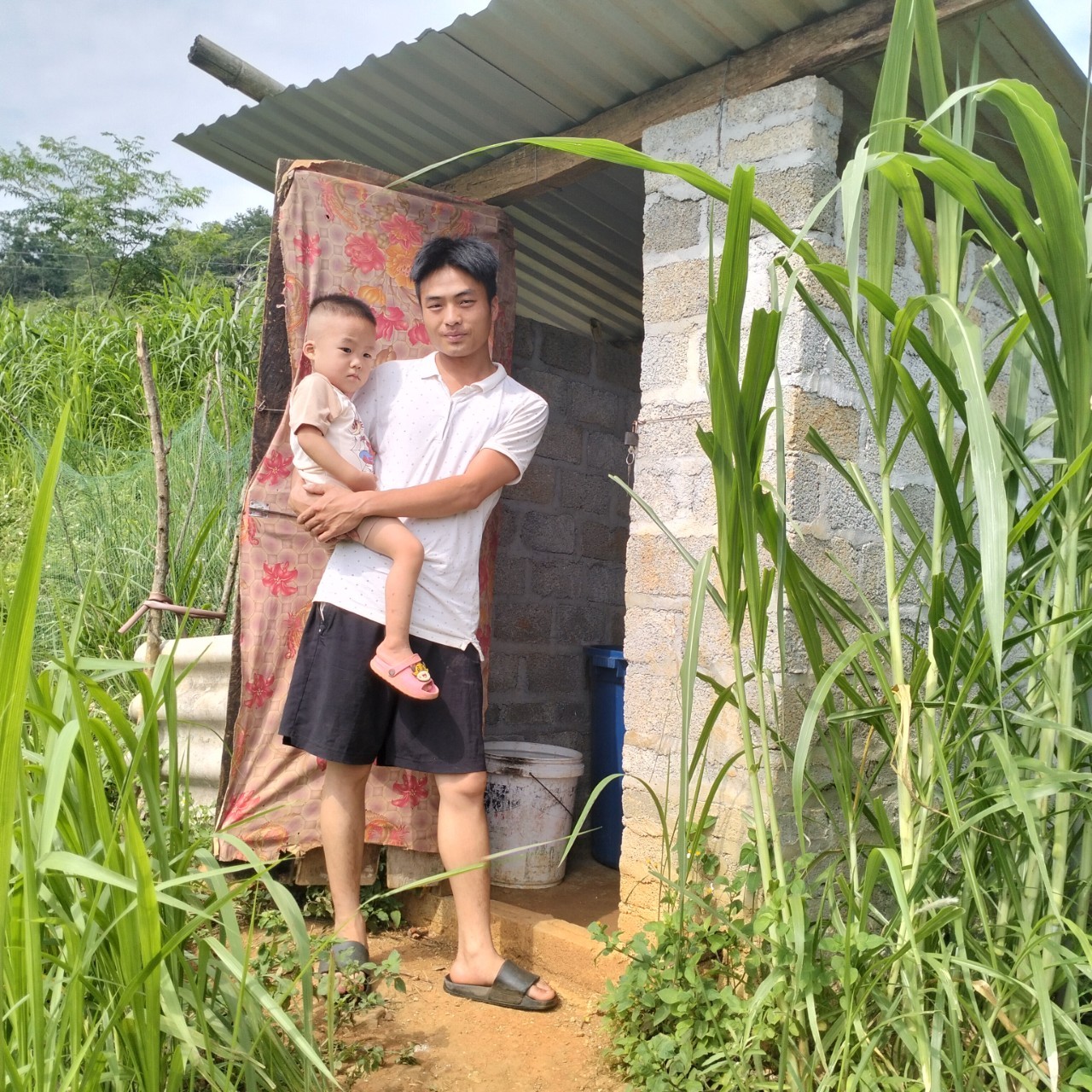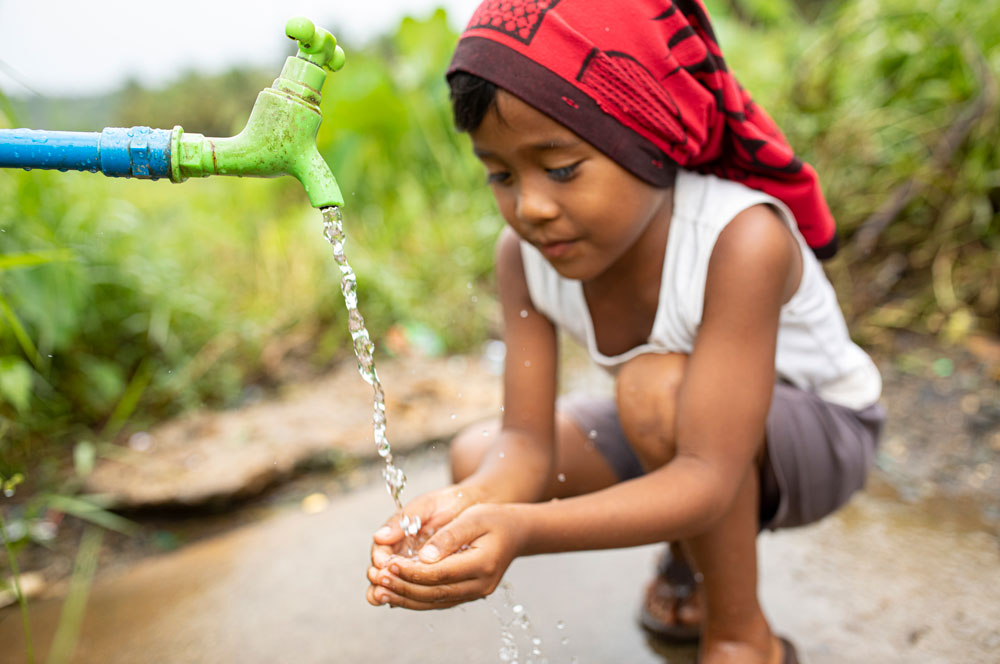You might be wondering, is World Toilet Day actually an international observance? Well, yes, World Toilet Day is marked annually on 19 November. It sounds funny, but the reality is that 3.5 billion people still live without access to safe sanitation or toilet facilities. That’s more than half the world’s population.
We celebrate World Toilet Day in order to bring awareness to the idea that a simple toilet can make an enormous improvement to the lives of vulnerable children and communities.
On World Toilet Day, we want to tell you more about the observance, its significance and how you can get involved. Read on for your guide to World Toilet Day!

Who invented the toilet?
Latrines have been used for thousands of years to dispose of human waste with various forms, including those used by the Romans, being more sophisticated than others. A latrine is very simple, usually a pit or a trench, whereas a toilet is a fixed receptacle which can easily be flushed out to dispose of waste.
The first flushable toilet was invented by English courtier Sir John Harrington in 1596. He described a 60-centimetre-deep oval waterproofed bowl, fed water from above by a cistern. Flushing this toilet required 3.8 litres of water to be poured into the bowl, which would drain the waste into a sewer below.
Toilets, as we know them today, were first manufactured by the English plumber Thomas Crapper, who invented the ballcock in the 19th century. The tank-filling mechanism is still used in all our toilets when we flush.
While Crapper didn’t invent the toilet, it was his addition to the toilet that revolutionised the way we manufacture and use sanitation facilities, as well as their potential to improve health and quality of life for those who use them. It is this “toilet” that we now associate with the term.
When was World Toilet Day first observed?
The first World Toilet Day was announced in 2001 by Jack Sim, a philanthropist from Singapore. It was founded to inform, engage and inspire people to take action towards providing accessible and safe sanitation facilities around the globe.
Goal 6 of the United Nations Sustainable Development Goals calls for adequate sanitation, which includes a system assuring that waste is safely processed. Efforts to bring attention to the current sanitation crisis were strengthened in 2010, when the United Nations announced that it is a basic human right to have access to water and sanitation.
What is the significance of World Toilet Day and why is it observed?
With 3.5 billion people worldwide without access to safe sanitation facilities, we are in the midst of a global sanitation crisis. World Toilet Day might not seem like a significant observance, but it is observed to raise awareness and encourage strategic thinking towards tackling the crisis.
A key topic of interest that is regularly discussed around World Toilet Day is sustainable development of sanitation facilities, particularly regarding the use of water resources and climate change. The observance also highlights the key role safe sanitation facilities play in preventing the spread of disease, and maintaining a good quality of health.
The power of toilets to transform lives and communities
When Mr. Tu and his wife first married, they could only afford a small wooden house with no toilet or bathroom. Living in a remote commune in Ngan Son District, Vietnam, they faced significant challenges in maintaining hygiene, especially with two young children. Without proper sanitation, the risk of health issues, including gastrointestinal diseases, was a constant concern.

Determined to make a change, Mr. Tu became the first in his community to build a low-cost septic tank toilet with support from ChildFund Vietnam. This simple but life-changing improvement has made it much easier for the family to maintain good hygiene. Along with education on the benefits of septic toilets and handwashing with soap, their health and hygiene have improved dramatically.
Now, Mr. Tu is helping spread the word. He’s working with the village head to share the toilet-building method with other families. The project has already helped 15 other households, improving hygiene, reducing health risks, and raising awareness of the importance of sanitation.
How to get involved in World Toilet Day
Getting involved in World Toilet Day is easy and can be loads of fun! We’ve put together a few ideas to help you get started, but we recommend bringing your creativity to the table and pushing the boundaries.
1. Raise awareness on social media
Social media is a great conversation starter, and there’s a number of ways you can initiate a World Toilet Day-focused conversation with your network:
- Share a photo of your toilet on Twitter with an informative caption about World Toilet Day and add in the hashtag #WorldToiletDay. (Remember to close the lid!)
- Start a poll on Facebook and ask your network if they’re aware of how many people don’t have access to safe sanitation facilities.
- Comment on content shared by the United Nations about World Toilet Day during the observance.
- Tag friends in engaging content on Facebook, LinkedIn and Instagram that includes facts about World Toilet Day you think they should know.
2. Educate yourself and others
An international observance is a great opportunity to educate yourself and others about a topic you might be interested to learn more about. Research content related to safe sanitation facilities, such as documentaries, videos, podcasts, articles and more.
Once you’ve built a strong foundation on the topic, organise a World Toilet Day-themed trivia event as a team-building activity with your colleagues, or a game to play with your friends on a Friday night.
3. Donate a Deepwater Borehole System
There are many charities which are working towards providing communities around the globe with the water resources and sanitation they need to improve the health of children and families.
You may wish to donate Gifts for Good, ChildFund Australia’s range of charity gifts, which includes the option to donate a deepwater borehole system. The water provided from the borehole system will be the first step in providing a community with safe sanitation facilities.
Alternatively, you can donate a share of a deepwater borehole system, which could be combined with others to fund drilling, construction and maintenance of a complete solar-powered, deepwater borehole system.
4. Donate monthly to ChildFund Australia
You can start making a difference to 1,000 children today, by making a monthly donation to ChildFund Australia. It’s a simple and convenient way to give and month by month, you’ll help to create lasting change that you can see.
Your donation will be used to support the education, safety and health of children in developing nations, including providing them with access to running water and sanitation facilities. By assisting with funding access to clean water and adequate sanitation, you’ll be helping to protect these children from diseases that can spread due to poor hygiene.
Make a difference this World Toilet Day
World Toilet Day isn’t just about toilets. It’s about the role toilets play in keeping each and every one of us healthy, and improving global access to safe sanitation facilities. We recommend that you have fun with this observance, get yourself and others involved, and express gratitude for something as simple as having a toilet.




































